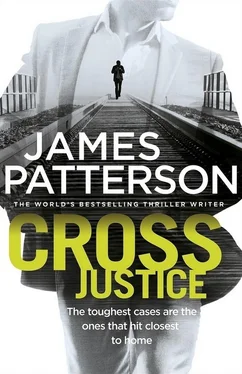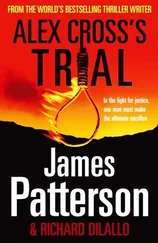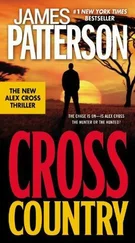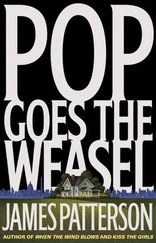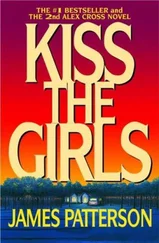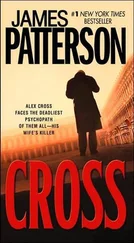Standing there, I could almost see my mother on one of her better mornings, dressed in her threadbare robe but glowing like a beauty queen, smoking a filtered Kent cigarette, making us waffles with sunny-side-up eggs on them, and singing along to Sam Cooke on WAAA 980 AM out of Winston-Salem.
... been a long time coming, but I know a change gonna come...
It was her favorite song, and she had an amazing raspy gospel voice developed in her father’s Baptist church. Hearing my mom sing in my head while I stood in the kitchen where she used to sing to us, I choked and then broke down crying.
I never expected it.
I suppose I’d put my mother away for so long in one of those boxes I keep locked in my mind that I thought I was long over the tragedy of her life. But obviously I wasn’t. She’d been smart, sensitive, and very funny. She’d been gifted with words and music. She could make up songs right off the top of her head, and on those rare occasions when I witnessed her singing in church, I swear to you, it was as if an angel possessed her.
But there were other times, too many times, when demons took her. She saw her own father commit suicide in front of her when she was twelve and she was emotionally crippled by it her entire short life. She found relief in vodka and heroin, and in the last few years of her life, I rarely remember her stone-cold sober.
I said that demons took her, but really, it was the memories festering in her drug-and-booze-addled mind that created the monster that she sometimes was late at night. From our beds, we’d hear her crying for her dead father, or screaming at him. On those nights, she’d get violent, break things, and curse God and all of us too.
All the children in an addict’s family play different roles and have different ways of coping. My brothers retreated into themselves when my mother was using and a danger to us. My job was to stop her from hurting herself and, later, to pick her up off the floor and put her to bed. In the language of recovery, I played the roles of hero and caregiver.
Standing there, recalling all those times I’d tried to forget, I suddenly saw plainly that my mother had created me in more ways than the physical. From an early age, I’d dealt with chaos and chaotic people, and to survive, I’d had to swallow my fears and force myself to understand and deal with sick minds. Those hard-won skills had inevitably led to my calling in life, to Johns Hopkins for my doctorate in psychology, and then to police work. And for those reasons and others, I realized that despite all the craziness and the loss, I was grateful to my mother and blessed to be her son.
Wiping my tears away, I left the kitchen and went into the hallway that led to the bedrooms. When I was a boy, there were just two in the house, and we had a single sorry excuse for a bathroom. Recently, another bath had been added. The large room where my brothers and I slept had been split in two. There were bunk beds in both of them now.
Staring into my distant past, oblivious to any noises in the house around me, I remembered my father on one of his better evenings, sober and funny, telling me and my brothers about some trip he was going to take us on to hear jazz on Bourbon Street in New Orleans.
Gotta have dreams, boys, he’d always say before he turned out the lights. Gotta have dreams and you’ve got to—
“Freeze!” a man shouted. “Hands up high where we can see them!”
I startled but raised my hands, looking over my shoulder and back down the hall into the kitchen. Two men in civilian clothes with police badges on lanyards around their necks were aiming pistols at me.
“On your knees,” barked the taller and younger of the two, a lean, ropy African American in his early thirties.
The other plainclothes cop was Caucasian, fifties, a pasty, pock-faced man with a hank of dyed brown hair and a mopey face.
“What’s going on?” I said, not moving. “Detectives?”
“You are breaking and entering a good friend of mine’s house,” the African American cop said.
“This house belongs to Connie Lou Parks, my aunt, who let me in and who rents it to her daughter, my cousin Karen, and, I would guess, to your friend Pete,” I said. “I used to live here when I was a kid, and by the way, I’m a cop too.”
“Sure you are,” said the older one.
“Can I show you my creds?”
“Careful,” he said.
I reached to push back my jacket, revealing the shoulder holster.
“Gun!” the African American officer shouted, and he and his partner dropped into a combat crouch.
I thought for sure they were going to shoot me if I tried to get my ID, so I eased my hand away, saying, “Of course I’ve got a gun. I am a homicide detective with the Washington, DC, police department. And in fact, I have two guns on me. In addition to the Glock forty, I have a small nine-millimeter Ruger LC9 strapped to my right ankle.”
“Name?” the older cop demanded.
“Alex Cross. You?”
“Detectives Frost and Carmichael. I’m Frost,” he said as he and his partner straightened up. “So here’s what you are going to do, Alex Cross. Strip the jacket, right sleeve first, and toss it here.”
There was no sense in arguing, so I did as he asked and threw my light sports jacket down the hallway.
“Cover me, Carmichael,” the older cop said, and he crouched so his partner could keep me squarely in his field of fire.
They were conducting themselves by the book. They didn’t know me from Adam, and they were handling the situation the way any veteran cop back in DC, including me, would have handled it.
When Frost got to my jacket, I said, “Left breast pocket.”
He squinted at me as he backed up a few feet, still in that crouch, and fished out the folder with my badge and ID.
“Drop your gun, Lou,” Frost said. “He’s who he says he is. Dr. Alex Cross, DC homicide.”
Carmichael hesitated, then lowered his weapon slightly and demanded, “You have a license to carry concealed in the state of North Carolina, Dr. Cross?”
“I have a federal carry license,” I said. “I used to be FBI. It’s in there, behind the ID.”
Frost found it and nodded to his partner.
Carmichael looked irritated, but he holstered his weapon. Frost did the same, then picked up my jacket, dusted it off, and handed it to me, along with my credentials.
“Mind telling us what you’re doing here?” Carmichael asked.
“I’m looking into Stefan Tate’s case. He’s my cousin.”
Carmichael went stony. Frost looked like some bitterness had crawled up the back of his throat.
Frost said, “Starksville may not be the big city, Detective Cross, but we are well-trained professionals. Your cousin Stefan Tate? That sonofabitch is as guilty as they come.”
As i walked across the cul-de-sac on Loupe Street to the third bungalow, I was mindful of the unmarked police cruiser pulling out behind me, and I wondered about the strength of the case against my young cousin. I’d have to get Naomi to show me the evidence, and—
Aunt Connie’s animated voice came through the screen door, followed by the sound of women cackling and men braying over something she’d said. The breeze shifted and carried the mysterious and wonderful odors from the kitchen of my aunt Hattie Parks Tate, my late mother’s younger sister. I hadn’t smelled those scents in thirty-five years, but they made me flash on boyhood memories: climbing these same front steps, smelling these same smells, and reaching for the screen door, eager to be inside.
This house had been one of my refuges, I thought, remembering how peaceful and orderly it was compared to the routine chaos across the street. Nothing had changed about that, I decided after peering in through the screen and seeing my family sitting around Hattie’s spotless house with plates piled high with her remarkable food, contentment on all their faces.
Читать дальше
